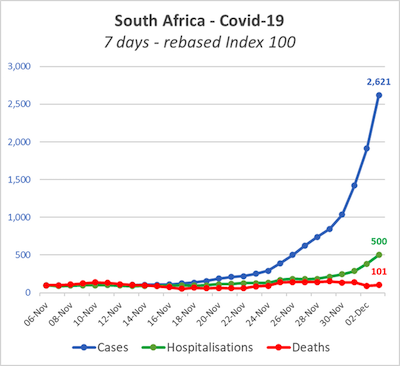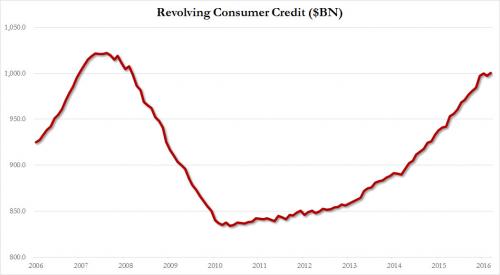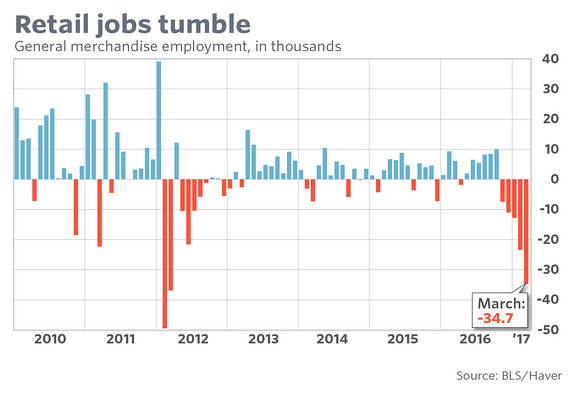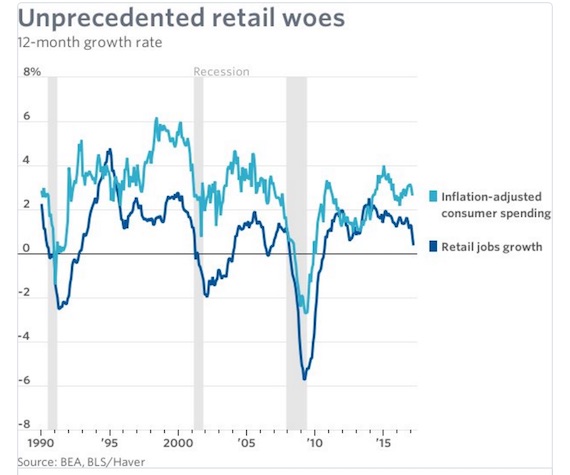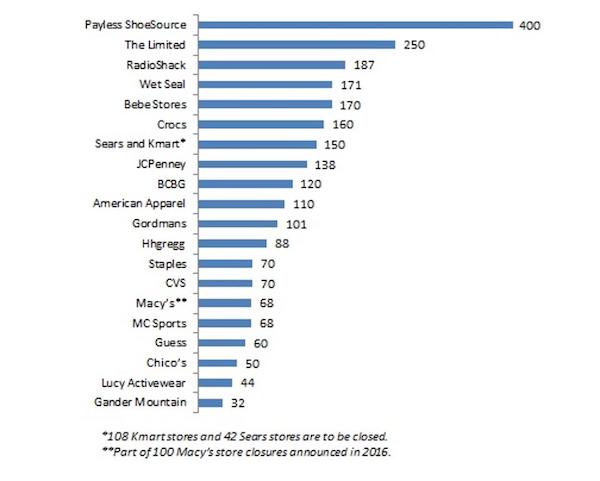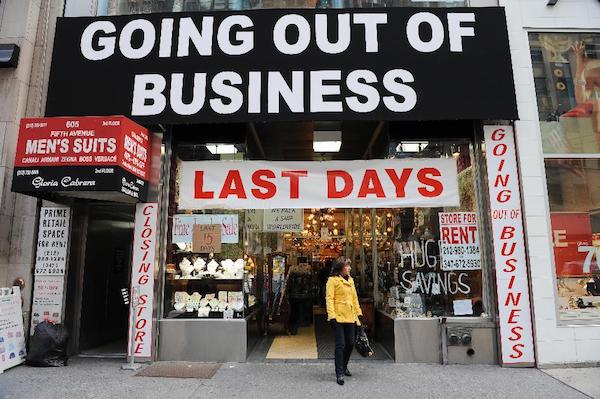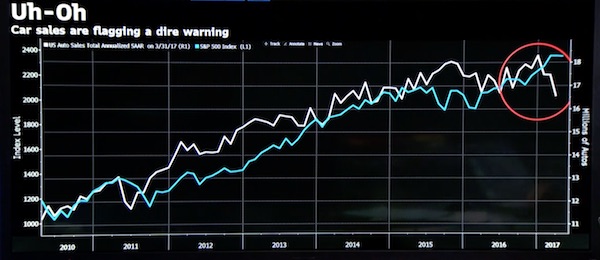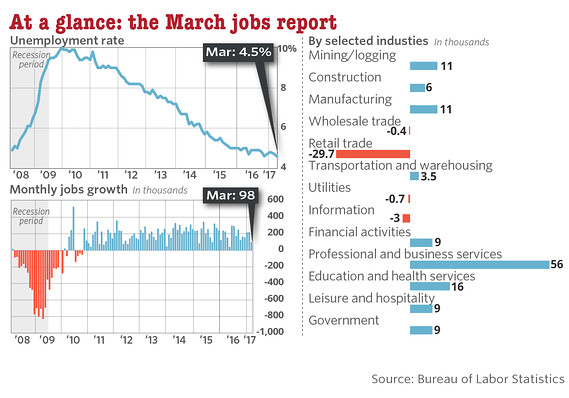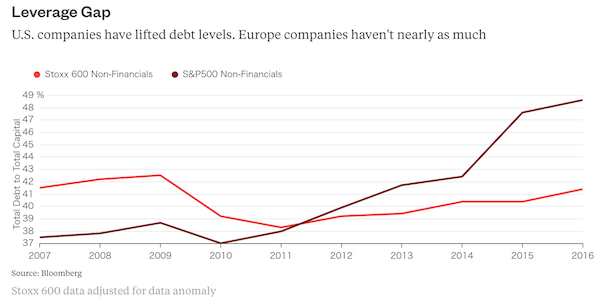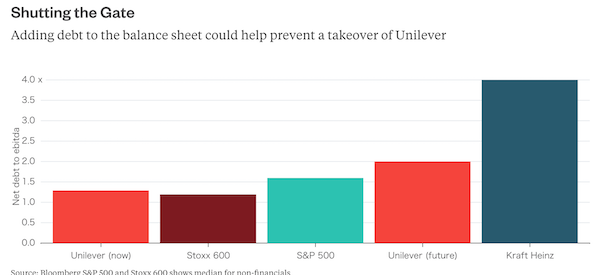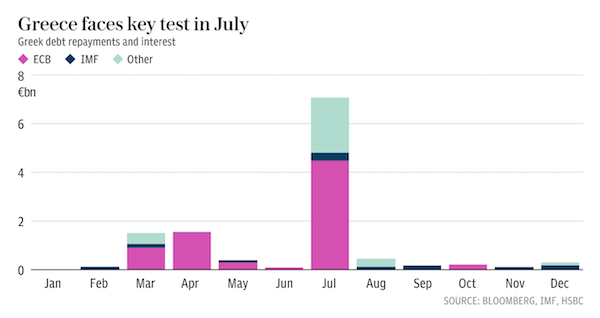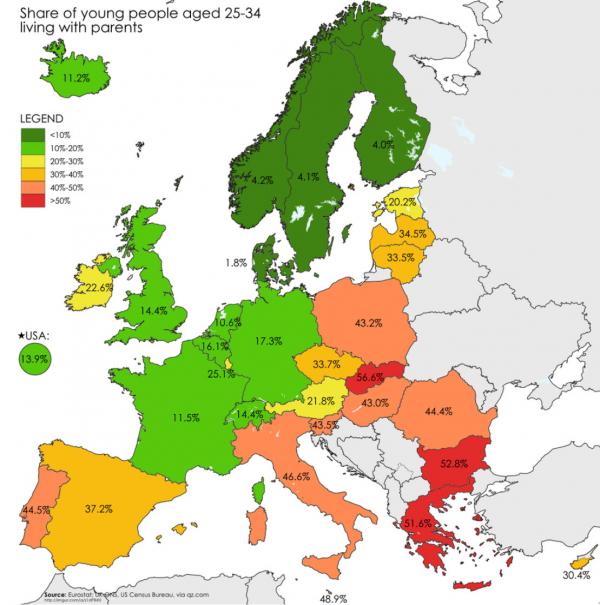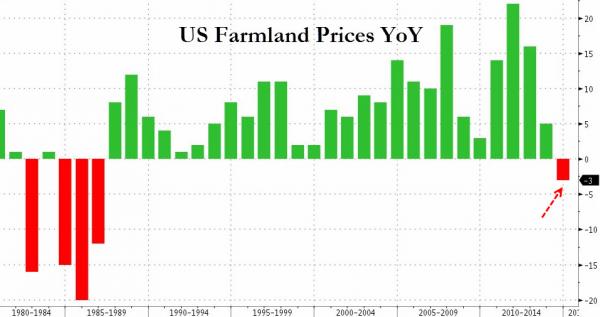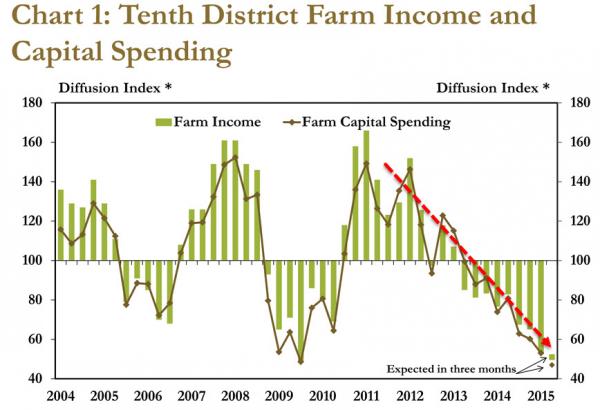
Edward Hopper Cape Cod evening 1939



View
SEE IT: @TheView's Whoopi Goldberg Says Biden “Could Throw Every Republican in Jail” if Trump Wins His Immunity Case in the Supreme Court. WATCH
Video: @unlimited_ls pic.twitter.com/cvNxZOWaQG
— Simon Ateba (@simonateba) March 1, 2024



Hatch Act
The Hatch Act bans the political activity of individuals
“who work in connection with programs financed in whole or in part by federal loans or grants.”
Hint: Just saying it’s bipartisan doesn’t make it legal.@OANN #hatchact #BidenAdministration pic.twitter.com/Bsu9L8ux6A
— Chanel Rion OAN (@ChanelRion) March 2, 2024

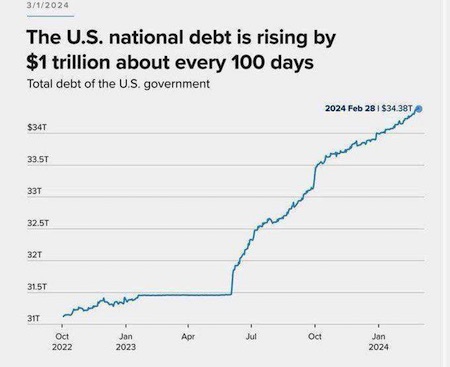

Elon open source
This is why Elon is suing OpenAI pic.twitter.com/Py8UOlLq43
— Teslaconomics (@Teslaconomics) March 2, 2024

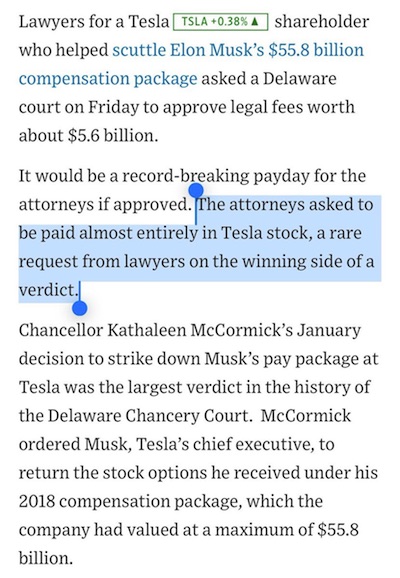

https://twitter.com/Real_RobN/status/1763616646617526400


Dangerous moment.
“..now are going to have to get accustomed to a bitter new reality..”
• Ukraine is Major Defeat for West Who Has Been Dominating Planet Earth (Sp.)
The conflict in Ukraine represents a major defeat for powers who have gotten used to “dominating planet Earth for hundreds of years” and are going to have to “get accustomed to a bitter new reality,” Dr. Gerald Horne, a professor of History at the University of Houston told Sputnik’s The Critical Hour on Friday. The topic of discussion was French PM Emmanuel Macron’s comments that he would not rule out sending NATO troops into Ukraine to fight Russia, which led to several of Macron’s allies, including UK Prime Minister Rishi Sunak and German Chancellor Olaf Scholz ruling out the possibility. Russian President Vladimir Putin in turn warned against the escalations, saying that it could lead to nuclear war. “Everything that they are thinking up now, that they are scaring the world with, it all really poses the threat of a conflict involving nuclear weapons, and therefore, the destruction of civilization. Don’t they understand this?” Putin asked during his annual state-of-the-nation speech.
“[Western politicians] have already forgotten what war is,” Putin said, adding later that they apparently “Think that these are just some cartoons.” Horne explained that NATO’s position is “the worst of both worlds,” because “it is enmeshed in a war it cannot win, but it can’t afford to lose. And when you are in such a corner, inevitably, it leads to the kinds of intemperate remarks of Mr. Macron, it leads to Rishi Sunak of London dispatching the flower of British youth to an uncertain fate in Ukraine,” he said, referring to comments by Scholz that there are already UK personnel in Ukraine operating Storm Shadow missile launches. “I think taxpayers and US citizens should ask themselves how all these think thanks and bureaucrats at the State Department and Pentagon… manage this kind of potential quagmire that NATO and the United States are now enmeshed in?”
The international situation is not what the White House bargained for, Horne said, but “rather than make a sober assessment and trying to make the best out of this rather daunting situation, they’re floating ideas about nuclear conflict, they’re floating ideas about escalation in Ukraine, they’re floating rather harebrained ideas concerning Russia, supposedly putting weapons in outer space. “We see that this is a major defeat that has been inflicted upon the powers that have been dominating planet Earth for hundreds of years, and now are going to have to get accustomed to a bitter new reality,” Horne said.

“They are spilling the beans in order to somehow stop this, so that the public of their countries support them, so as not to cross the Rubicon, so as not to get involved in a direct open war..”
• NATO Teetering on Edge of Direct Conflict With Russia (Sp.)
A recording of German military officers discussing a potential attack on the Crimean Bridge was released by Margarita Simonyan, editor-in-chief of RT and Rossiya Segodnya, Sputnik’s parent media group, on March 1. Judging from the transcript, NATO soldiers from the UK, the US and France have been operating in the Ukraine combat zone for quite a while. “A significant part of the weapons used by the Ukrainian Armed Forces is supplied from the West,” Leonid Reshetnikov, a retired lieutenant general of Russia’s Foreign Intelligence Service (SVR), told Sputnik. “In addition, there is a considerable presence of Western intelligence operatives from NATO countries in Ukraine. They have long settled there, in Ukraine, even before 2014 – the intelligence services of the US, the UK, and also other countries.”
Likewise, when transferring sophisticated and high-precision weapons to Ukraine, NATO countries usually also dispatch maintenance personnel, repair staff and crews to operate this equipment to the combat zone, the retired intelligence officer continued. “They have no time for training the Ukraine military in the midst of the special military operation. Therefore the crews of these [NATO] countries have been operating or firing systems such as Patriot air defense systems and other systems supplied by the Americans, NATO members, the French, and the British for quite a while. Of course, they are not deployed at the very forefront, but they operate artillery, air defense systems, and partially tanks,” Reshetnikov said. Similarly, NATO Special Forces disguised as mercenaries have also been deployed in the zone of the special military operation, according to the intelligence veteran.
“Yes, there are indeed some mercenaries [in Ukraine] who had been engaged in this business well before the special military operation. But starting from the mid-2022 or the beginning of 2023, there has been a systematic recruitment of active [NATO] units,” he said. Reshetnikov explained that under this scenario, NATO Special Ops soldiers formally leave their unit and go to the zone of the special military operation as volunteers. However, they are not only paid for participating in hostilities on Ukraine’s side, but also retain the income they received while serving in the army of a NATO country. Thus, Special Forces from the US, the UK and France are fighting on the ground pretending to be mere mercenaries. Given all of the above, one can see that NATO is really involved in the Ukraine conflict and is actively fighting on the side of the Kiev regime, the intelligence veteran emphasized.
Prior to the Bundeswehr release, German Chancellor Olaf Scholz came under fierce criticism for disclosing information about the presence of the British and French military in the combat zone in Ukraine. According to Scholz, Western soldiers have been dispatched to operate long-range Storm Shadow and SCALP cruise missiles and help Ukrainian fire at Russian targets. Speaking to journalists in Berlin earlier this week, Scholz explained why Berlin hesitates to send Taurus missiles to Ukraine. “This is a very far-reaching weapon,” Scholz said about the Taurus. “What the British and French are doing in terms of target control and support for target control cannot be done in Germany.” Berlin’s French and British allies lambasted the German chancellor for what they called a “flagrant abuse of intelligence”.
[..] Reshetnikov outlined two opposite trends. According to him, there are Western politicians, who, like Emmanuel Macron, are willing to expand NATO’s involvement in the Ukraine conflict. However, there are also others, who fear that the alliance’s presence in the conflict zone may lead to direct confrontation with nuclear-armed Russia. The latter are openly speaking about NATO’s involvement to trigger a public debate and resentment about getting bogged down in Ukraine, according to the intelligence veteran. “They are spilling the beans in order to somehow stop this, so that the public of their countries support them, so as not to cross the Rubicon, so as not to get involved in a direct open war,” he stressed.

“We were riding high and riding dirty. And that’s what this was, we thought we were unstoppable and we could just coup anyone we wanted, there’d never be any repercussions..”
• Ukraine Will Be ‘The Largest Operation In CIA History’ (HE)
Jack Posobiec hosted guest Mike Benz on Human Events Daily Thursday to hear his take on the New York Times article that detailed the CIA’s involvement in Ukraine prior to the Russia invasion, which Benz said will reveal itself to be “the largest operation in CIA history.” The pair unpacked the reasoning behind the New York Times releasing their story which essentially agreed with what conservative commentators such as Posobiec have been saying since the war began. “This is actually such a shocking moment in American journalist history,” Benz stated. “These are highly highly, highly classified operations.” He said that “It’s my contention that when the dust settles on this, the Ukraine skirmish in the aftermath of the 2014 Maidan coup is going to ultimately be the largest operation in CIA history.” Compared to the CIA’s Syrian operation under Barack Obama, which was revealed to be the most expensive operation up to this point, Ukraine will blow it out of the water once all said and done, Benz said.
Posobiec clarified that Benz was implying the NYT article was a “limited hangout” when “an operation becomes so compromised, or public knowledge or public interest becomes so obvious around something,” that the CIA begins to unveil pieces of the big picture, like an “onion.” When the US involved itself in Ukraine in the Barack Obama, Hillary Clinton, and John Brennan era, “We were riding high and riding dirty. And that’s what this was, we thought we were unstoppable and we could just coup anyone we wanted, there’d never be any repercussions, and no one would ever stand up for themselves, and Russia would never actually backstop it,” Benz said. This, however, was a “serious miscalculation.” “And when it turned out that their own population didn’t support these dirty tricks, either in the form of the rise of a populace presidential candidate like Donald Trump who was running on putting America first in domestic priorities over foreign policy,” he explained, “then all hell broke loose.”

“We are being made a target for Russian weapons and this matter must be discussed. The citizens must be informed about how carelessly and irresponsibly politics [in Germany] are being conducted..”
• NATO’s Presence in Ukraine is ‘Hardly Surprising for Anyone’ (Sp.)
The German military made headlines this week after a recording of officials discussing the possible shipments of Taurus cruise missiles to Ukraine and the use of these weapons against targets in Russia was disclosed by Margarita Simonyan, editor-in-chief of RT and Rossiya Segodnya, Sputnik’s parent media group. In the recording, the German officers can be heard mulling various issues related to the transfer of Taurus missiles to the Kiev regime, as well as how to avoid implicating Germany’s involvement in the conflict while doing so. According to Eugen Schmidt, a member of the German parliament from the Alternative for Germany (AfD) party, the officers in question were likely not pursuing objectives of their own but were merely preparing for the possibility of Berlin approving the transfer of the missiles to Kiev.
“They act on political directives coming from above. That is, they follow orders, just like any military does. They do not act on their own initiative. So if a political decision on shipping the missiles is made, they would have to follow through,” Schmidt said. The lawmaker compared the current situation with the Taurus missiles to the Leopard tanks, which Germany was initially reluctant to supply to Ukraine but ultimately did after caving in to pressure from both the German political opposition and the “so-called allies from across the ocean.” “I do not know what really goes on in the defense ministry, but I suspect that the military were expecting certain political factions to force through the decision on missile shipments,” he said. “Besides, the French and the British are already sending similar missiles [to Ukraine], so the military likely assumed that Germany would have to do the same. And so they started calculating what would they have to do to make it happen.”
Commenting on the remarks made by the German officers during the conversation about a British and US military presence in Ukraine, Schmidt noted that NATO does wage a war against Russia, just not directly but by using Ukraine as a proxy. “So the presence of [foreign] military personnel there is hardly surprising to anybody, especially when it comes to planning operations, maintaining NATO military hardware and so on,” he said. At the same time, Schmidt pointed out, the powers that be in Western countries keep telling their citizens that there is no NATO military personnel in Ukraine. “They are painting a whole different picture for the common people, even though everyone realizes that there is NATO personnel there, a lot of them, not on the frontline but, shall we say, in the second or third echelon,” he added.
Schmidt also lamented that only the AfD, the German political party he represents, openly declares that a conflict with a nuclear power and the actions of the German government are detrimental to Germany’s security whereas other parties in the country prefer to keep quiet on such matters. “We are being made a target for Russian weapons and this matter must be discussed. The citizens must be informed about how carelessly and irresponsibly politics [in Germany] are being conducted at the expense of our safety,’ he said.

“..the Germans have decades ahead of them in how be an effective fighting force on the international stage when they are so plagued by rank amateurism..”
• Germans Plotting Attack on Russian Infrastructure: A Bridge Too Far (Jay)
When, at the beginning of the Ukraine war Scholz had his “moment” in the German parliament where he announced a new level or military spending many Germans paused and became nervous about the possibility of history repeating itself. But they were not alone. Many Europeans wondered about how wise the move was as it propelled a weak and ineffective coalition government down a dangerous and treacherous path towards exactly the same circumstances which led to the collapse of democracy in the 1930s and the rapid emergence of Hitler and his so-called “socialist” party: nationalism. Also, comical are the number of times these officials talk about the British who they call “the English” and how they consider them to be such important partners in the war against Russia, not only from a strategic standpoint but also a financial one. Roger and Fritz are closer than they’ve ever been.
But the obsession with the Crimean bridge is interesting as the transcripts reveal that it is on the Ukrainian side where the idea to hit it comes. The German airforce senior officials are sceptical about hitting the bridge with sufficient impact to actually destroy it and even less convinced that the Ukrainians can do this on their own. The idea of a French made Rafael jet is suggested for the job, but they believe that it would require 20 Taurus missiles to destroy it to any significant level. What exactly the Russians do while a French fighter jet repeats sortie after sortie dropping its bombs is unclear. There is also the problem of how to deflect attention or finger pointing when the job is done. It’s here where we see that the German air force commanders are woefully ignorant and misinformed about the realities on Russian intelligence.
The Germans actually believe they can protect themselves with a ring of disinformation and amateur distractions – like having their own people, while in Kiev talk with strong American accents while doing the training and logistics right through to insisting that the Ukrainians make a documented approach to the Germans for the equipment and training. As though this would temper the Russians even if they believed it once the bridge is destroyed! We are really in the land of amateur spooking here which leads the reader to believe that the Germans have decades ahead of them in how be an effective fighting force on the international stage when they are so plagued by rank amateurism – the same dismal lack of planning which made them lose the battle of Barbarossa in the second world war.
Planning is a word which comes up in the conversation transcripts a lot as it is an obsession of German public servants, whether they be in the military or work for Deutsche Welle news department – the latter a public funded German propaganda station which is so bad that even Germans gave up watching it years ago, forcing its executives to scrap the German language service. And yet it is the lack of planning, but merely the talk of it, which is the real heart of the problem of German thinking. A Bridge Too Far, in fact.

Ray McGovern: “If I were Putin, I would have my focus on full alert because one of these acolytes [might] say ‘hey, Mr. Biden… we did the cluster ammo, we did the depleted uranium, who’s going to complain if we do just a mini-nuke?’”
• ‘Sheer Incompetence and Ignorance’ Led to Plan to Attack Crimean Bridge (Sp.)
On Friday, RT and the Rossiya Segodnya media group (Sputnik’s parent company) Editor-in-Chief Margarita Simonyan published leaked audio of a conversation involving four German senior military officers, including the head of the German Air Force, General Ingo Gerhartz. The audio included operational and targeting details of Taurus missiles even though in public, sending Taurus missiles to Ukraine remains a matter of debate. Significantly, the four officers discussed hitting the Crimean bridge and how to maintain plausible deniability for their involvement in such operations. Ray McGovern, a peace activist and former CIA analyst with over 27 years of experience, told Sputnik’s The Critical Hour that only “sheer incompetence and ignorance” would lead NATO to consider such plans.
McGovern said that the leaked German conversation, which has since been reportedly confirmed as authentic by German officials, reflected comments that former CIA Director and Secretary of Defense Robert Gates made during an interview with Western media. “If you want to give the Russians pause, if you want to interrupt that sense of momentum that they have, why not be able to do things like drop the Kerch Strait Bridge? That would have a big impact on the Russians, I think, psychologically as well as militarily,” Gates said during the interview. “Here’s this wise man, Bobby Gates, saying ‘Oh let’s get into World War Three,’” McGovern said. “I mean, if he is speaking for an influential element not only in the White House but also the German Army, my God.”
“It’s just sheer incompetence and ignorance,” McGovern continued later. “He reads the intelligence. Previous presidents and previous CIA directors are given special treatment, they can read the latest and most sensitive intelligence. … The intelligence has been so bad that Bobby Gates could be led to believe this would teach the Russians a lesson.” After noting that Gates wrote in his autobiography that “it has never been on top of [Gates’] job jar to please the Russians,” McGovern warned that “it may not be on top of the jar of people to make Putin or the Russians happy, but my God, they have to recognize that they don’t want to alienate the Russians or make the Russians think that [the West is] so unpredictable that the Russians may have to use this advantage that they have now in strategic weaponry.” Co-host Wilmer Leon asked about comments from US Senator and vice chair of the Intelligence Committee Marco Rubio (R-FL) that Ukraine needs to end in a negotiated settlement. McGovern said he doubted Rubio’s intentions but said the comments were still significant.
“He’s the same guy that voted vociferously to give [$60 billion] more to Ukraine, and of course $14 billion to Israel, X billion to Taiwan and whoever else. So I don’t know. A lot of this is rhetoric now, but it is significant that the rhetoric itself is changing,” McGovern explained. “If they don’t get a negotiated settlement or something they [can] depict as the same, it’s going to be just a disastrous loss.” But anytime a world nuclear power is cornered, it can be extremely dangerous, McGovern warned. “As John Kennedy said in that wonderful American University speech ‘Never give another nuclear power a choice between a humiliating retreat and using nuclear weapons’… Joe Biden is faced with humiliating retreat, he’s got lots at stake here,” McGovern warned. “If I were Putin, I would have my focus on full alert because one of these acolytes [might] say ‘hey, Mr. Biden… we did the cluster ammo, we did the depleted uranium, who’s going to complain if we do just a mini-nuke?’ So that’s the danger here.’”

Good cop bad cop?
• German and French Leaders ‘Don’t Get Along’ – Bloomberg (RT)
The relationship between German Chancellor Olaf Scholz and French President Emmanuel Macron has long been strained, but Macron’s recent refusal to rule out sending troops to Ukraine has driven tensions to boiling point, Bloomberg reported on Friday. The rift between Paris and Berlin was exposed earlier this week when Macron declared that while “there’s no consensus today to send… troops on the ground” to Ukraine, “we cannot exclude anything.” Responding a day later, Scholz told reporters that there will be “no ground troops, no soldiers on Ukrainian soil, who are sent there by European or NATO countries,” and that the alliance’s leaders were “unanimous as far as this question is concerned.”
Macron’s statement was “deliberately ambiguous,” and intended to “create uncertainty in the mind of Russian military planners,” Bloomberg reported, paraphrasing anonymous officials. However, it was made “against the express wishes of Scholz’ office,” the same officials said. In a further dig at the German chancellor, Macron followed up his comment by calling out NATO members who had offered Ukraine nothing but “helmets and sleeping bags” when the conflict with Russia began in February 2022. According to Bloomberg, this was perceived as an insult by the chancellery, considering that Scholz rapidly overcame his initial reluctance to send lethal weapons to Ukraine, with Germany now Kiev’s second-largest provider of military aid. Despite Macron’s apparent willingness to escalate, Germany has sent Ukraine 27 times more bilateral military aid than France (€17.7 billion to €0.64 billion), according to figures from the Kiel Institute for the World Economy.
“In Berlin,” Bloomberg noted, “Macron is seen as a monarchical figure who is better at issuing grand visions than delivering.” Close aides to Scholz acknowledged to Bloomberg that “the two don’t get along.” On the other hand, “Macron sees Scholz as a leader without courage and ambition who cannot think beyond the short term,” a French official told the American news site. Further evidence of this rift emerged on Monday when Macron announced that he was leading a coalition of states to provide Ukraine with “medium and long-range missiles and bombs” to strike deep into Russian territory. On Thursday, Scholz said that he was reluctant to send long-range Taurus cruise missiles to Kiev, as they could potentially be used to strike Moscow.
Scholz also angered British and French officials earlier in the week when he said that British Storm Shadow and French SCALP-EG cruise missiles – which are already being used by Ukraine and are roughly equivalent to the Taurus – required British and French crews to operate, a statement implying that both countries already had military personnel on the ground in Ukraine.. In his annual state-of-the-nation address on Thursday, Russian President Vladimir Putin warned that Western leaders toying with the idea of intervening in Ukraine “have already forgotten what war is.” Russia, he said, has a massive nuclear arsenal, and therefore “the consequences for potential invaders would be far more tragic” than in bygone eras.

“The Western defense base is pathetic and you’re not going to out-conventional war the Russian bear..”
• Erik Prince Calls For ‘Ugly Peace’ In Ukraine (RT)
The West should pull the plug on the Ukraine conflict as soon as possible because it will not be able to outperform Russia’s defense industry, Erik Prince, founder of the American private military company Blackwater has said. Speaking to the podcast PBD on Friday, Prince, who served as the CEO of the mercenary group until 2009 and now heads Frontier Resource Group, a private equity fund, expressed doubts about whether Kiev and its Western backers could prevail in the conflict with Russia, which has just entered its third year. “We need to bring this war to a close because all Ukraine is doing right now is destroying itself demographically,” he said, adding that hostilities are “chewing up the next generation of Ukrainian manpower,” which will be almost impossible to replace. “The Western defense base is pathetic and you’re not going to out-conventional war the Russian bear,” Prince argued.
According to the former US Navy SEAL, in this light, the “ugly peace” and a freeze in hostilities would be a better option both for Kiev and its Western supporters than “whatever their idea of an ideal war is,” adding “let them [Russia] keep Crimea, Donetsk, Lugansk. Whatever.” The majority Russian-speaking Autonomous Republic of Crimea and city of Sevastopol voted overwhelmingly to become part of Russia in a 2014 referendum after a Western-backed coup in Kiev. Donetsk and Lugansk, regions which had declared independence from Ukraine, followed suit in September, 2022 after the start of the current conflict. However, Prince did not mention Kherson and Zaporozhye regions, which also held successful referendums to join Russia in the fall of 2022. “It’s not the American taxpayer’s obligation to spend another hundred billion in Ukraine when there’s been significant corruption and really nothing to show for it,” he added.
Meanwhile, Tesla and Space X CEO Elon Musk appeared to agree with Prince. Commenting on the Blackwater CEO’s quotes, which were cited by American investor David Sacks, he wrote on X (formerly Twitter): “Unfortunately, that is true.” Russia maintains it is open to talks on Ukraine; however, Ukrainian President Vladimir Zelensky signed a decree banning talks with the current leadership in Moscow after the referendums in Kiev’s four former regions, which it immediately condemned as illegitimate. At the same time, Kremlin spokesman Dmitry Peskov said last year that Moscow is opposed to a freeze in the Ukraine conflict, saying that it will not stop until its goals are accomplished and national interests protected by military or other means. Russia has repeatedly said that its main goals are to “denazify” and “demilitarize” Ukraine.

Next up: food rationing?!
• German Healthcare System Should Prepare For War – Minister (RT)
Germany must improve its healthcare system to be able to swiftly respond to crisis situations, such as a new pandemic or a military conflict, Health Minister Karl Lauterbach has said. Legislation for reforms expected to be presented this summer will be “a turning point for the healthcare system,” the Social Democratic Party (SPD) politician told the newspaper Neue Osnabrucker Zeitung in an interview published on Saturday. Though the ruling ‘traffic light coalition’ has already pushed for reforms following the Covid-19 pandemic, the health minister said that with the Ukraine conflict, the challenges have become even more important. “In the event of a crisis, every doctor, every hospital, every health authority must know what to do. We need clear responsibilities – for example, for the distribution of a high number of injured people among the clinics in Germany,” Lauterbach explained.
The minister said hospitals must also conduct drills to practice their response to disasters, dismissing accusations of scaremongering by arguing that “doing nothing is not an option.” “It would be silly to say we are not preparing for a military conflict and then it won’t come. According to this logic, there would be no need for a Bundeswehr,” he said. German Defense Minister Boris Pistorius stated last November that the country must become “war-capable,” and insisted again in January that Berlin and all of NATO should arm itself more actively to be able to “wage a war that is forced upon us.”
Last month, Bundeswehr General Carsten Breuer called for a “change in mentality” in German society, insisting that the nation needs to build credible “deterrence” to prepare for a potential war with Russia within five years. Commenting on claims that Russia could be planning an attack on Germany or any other NATO state, Kremlin spokesperson Dmitry Peskov said in January that EU officials were “inventing an external enemy” to divert attention away from domestic problems. Russian Foreign Minister Sergey Lavrov stated that “no one wants a big war,” especially Moscow. Russian President Vladimir Putin has dismissed the claims as “complete nonsense,” insisting that Moscow has “no geopolitical, economic… or military interest” in starting a conflict with NATO.

“..Germans might rally round the flag, or they might openly rebel against an already deeply unpopular government..”
• The West Can’t Be Trusted To Observe Its Own ‘Red Lines’ In Ukraine (Amar)
French President Emmanuel Macron and German Chancellor Olaf Scholz have disagreed publicly over how to support Ukraine – which has been ruthlessly deployed by the West as a geopolitical proxy – in its conflict with Russia. Macron used a special EU meeting he had convened, rumor has it directly inspired by Ukrainian President Vladimir Zelensky, to state, in effect, that sending Western combat troops into Ukraine was an option. Of course, the West already has troops on the ground, including those flimsily camouflaged as volunteers and mercenaries, or otherwise participating in the conflict (for instance by planning and targeting), as a recent leak of US documents has confirmed. But an open intervention by ground forces would be a severe escalation, directly pitting Russia and NATO against each other, as Moscow has quickly pointed out, and making nuclear escalation a real possibility.
Russia has deliberately tolerated a certain degree of Western intervention, for its own pragmatic reasons: In essence, it seeks to win the war in Ukraine, while avoiding an open conflict with NATO. It is willing to pay the price of having to deal with some de facto Western military meddling, as long as it is confident it can defeat it on the Ukrainian battlefield. Indeed, the strategy has the added advantage that the West is bleeding its own resources, while the Russian military is receiving excellent hands-on training in how to neutralize Western hardware, including much-touted “miracle weapons.” You do not have to believe Moscow’s words, but simply consult elementary logic to understand that there is an equally hard-headed limit to this kind of calculated tolerance. If the Russian leadership were to conclude that Western military forces in Ukraine were endangering its objectives (instead of merely making achieving them harder), it would raise the price for certain Western countries. (Selective treatment would be adopted to put under stress – quite possibly to breaking point – Western cohesion.)
Consider Germany, for instance: Berlin is by far Ukraine’s biggest bilateral financial supporter among EU states (at least in terms of commitments). Yet militarily, for now, Russia has been content with, in essence, shredding German Leopard tanks as they arrive on the battlefield. And, in a sense, punishing Germany’s meddling can safely be left to its own government: the country has already taken massive hits to its economy and international standing. But if Berlin were to go even further, Moscow’s calculations would change. In that case, as little as German mass media allow German citizens to think about it, a “sobering” (to use a term from Russian doctrine) strike – initially probably non-nuclear – on German forces and territory is possible. The domestic consequences of such an attack are unpredictable. Germans might rally round the flag, or they might openly rebel against an already deeply unpopular government that has been sacrificing the national interest with unprecedented bluntness to Washington’s geopolitics.
If you think the above sounds a little far-fetched, I know of someone who clearly does not share your complacency: the German chancellor. Stung by Macron’s provocation, Scholz countered with telling alacrity. Within 24 hours after the surprise French move, he publicly ruled out the sending of “ground troops” by “European nations or NATO nations,” underlining that that this red line has always been agreed on. In addition, the chancellor also chose exactly this moment to reaffirm that Germany will not deliver its Taurus cruise missiles to Kiev, as escalation that proponents have long demanded, including inside Germany. With, according to Scholz, the capability of striking Moscow, Berlin’s missiles in Ukrainian hands and Macron’s hypothetical ground forces have one thing in common: they come with a serious risk of spreading direct fighting beyond Ukraine, in particular to Western Europe and Germany.

“..in addition to Russia, he will visit the EU headquarters, Poland, Ukraine, Germany and France..”
• Settlement In Ukraine Impossible Without Moscow – China (TASS)
Russian Deputy Foreign Minister Mikhail Galuzin and Special Representative of the Chinese Government on Eurasian Affairs Li Hui during a meeting in Moscow stated that any discussion of the settlement in Ukraine is impossible without Russia’s participation and taking into account its security interests, the Russian Foreign Ministry said in a statement. “An engaged and detailed exchange of opinions on the Ukrainian crisis took place. It was stated that any discussion of the political and diplomatic settlement is impossible without Russia’s participation and consideration of its interests in the security sphere,” the foreign policy agency said.
“That said, it was noted that ultimatums to Russia promoted by Kiev and the West and related dialogue formats only harm the prospects of any settlement and cannot serve as its basis,” the ministry stressed. The meeting was held in a traditionally friendly and trusting atmosphere, typical of Russian-Chinese relations, the agency added. On March 2, Li launched his second tour aiming to seek ways to settle the Ukrainian conflict. It is expected that, in addition to Russia, he will visit the EU headquarters, Poland, Ukraine, Germany and France. The previous tour took place in May 2023.

Tolerance for body bags is not high in Israel.
• Heavy Losses Inflict ‘Dramatic Manpower Crisis’ On Israel (Cradle)
The Israeli military is demanding an addition of at least 7,000 soldiers to its forces due to a serious manpower crisis. The 7,000 are needed on top of the soldiers already enlisting, the Israeli army said on 1 March. “The army requires standards for another 7,500 officers and noncommissioned officers, while the Treasury currently approves only 2,500. These are unprecedented numbers, which indicate the shock that befell the IDF following almost 150 days of fighting, which began with heavy losses on 7 October,” Hebrew news site Ynet reported, citing the army’s General Staff. “The army is compiling the data that will explain how dramatic the manpower problem is,” it added. Just one day ago, Israel’s Defense Minister, Yoav Gallant, called to end draft exemptions for members of the ultra-Orthodox community. Gallant said he would only support legislation allowing for continued exemptions if all members of the ruling coalition backed it.
The minister asserted that “all parts of society” must “bear the burden” of service. Gallant’s position could result in tension with ultra-Orthodox parties in the coalition, viewed as integral to the current government’s survival, according to Hebrew media. However, the army’s demand for a boost in manpower “has nothing to do with politics or the demand for equal burden: The situation is simply not good and does not match the threat map,” Ynet wrote. Israel is taking severe losses in its genocidal war in Gaza and its attempt to eradicate the Palestinian resistance. While Israel claims that Gaza’s southernmost city of Rafah is the final Hamas stronghold, the group’s military wing, along with several other factions, continue to fiercely confront Israeli troops across the strip.
A source from within the resistance told Al-Mayadeen on Thursday that the Israeli army has been forced out of Gaza City’s Al-Zaytoun neighborhood, where it had been operating over the past eleven days in an attempt to clear out Hamas fighters. The source added that the neighborhood is a “graveyard” for Merkava tanks, and the “bloodied and torn” uniforms of Israeli soldiers are spread out across the battlefield. Clashes between the resistance and the army continued to rage on 1 March in several areas of Gaza, including the southern city of Khan Yunis and the Jabalia area in the northern strip.

“..a Republican event on Sunday in the District of Columbia (they have Republicans?)..”
• Trump Trounces Haley In Idaho, Missouri, And Michigan (ZH)
Donald Trump dominated in Saturday’s primary races, inning caucuses in Idaho and Missouri – while sweeping the delegate haul at a Michigan party convention. The former president earned every delegate at stake on Saturday, bringing his overall count to 244 vs. Nikki Haley’s 24. To secure the Republican nomination, Trump will need 1,215 delegates in total. In Michigan, Trump won all 39 delegates at the Republican convention in Grand Rapids, after winning the state’s primary on Tuesday with 68% of the vote vs. Haley’s 27%. In Missouri, Trump won 51 delegates. Things went particularly not well for Haley at one point: “The steep odds facing Haley were on display in Columbia, Missouri, where Republicans gathered at a church to caucus. Seth Christensen stood on stage and called on them to vote for Haley. He wasn’t well received. Another caucusgoer shouted out from the audience: “Are you a Republican?” An organizer quieted the crowd and Christensen finished his speech. Haley went on to win just 37 of the 263 Republicans in attendance in Boone County.” -AP.

Earlier in the day, Missouri Trump supporters inside a church in Columbia linked up to appeal for the former president. “Every 100 days, we’re spending $1 trillion, with money going all over the world. Illegals are running across the border,” said Tom Mendenall, an elector for Trump in 2016 and 2020. “You know where Donald Trump stands on a lot of these issues.” And in Iowa, Trump won 32 delegates, once again smoking Haley. Next on deck is a Republican event on Sunday in the District of Columbia (they have Republicans?), followed by Super Tuesday two days later, when 16 states will hold primaries – and the date Haley suggested she’d be dropping out if things don’t start going her way. This is going to be fun, no? From tonight’s speech in Virginia:
LMFAO!!! OH MY GOD! pic.twitter.com/FwF0vZHTXh
— Bad Hombre (@joma_gc) March 3, 2024

Once the main Jan. 6 story.
• The Pipe Bombs Before Jan. 6: Capital Mystery That Doesn’t Add Up (Julie Kelly)
The now defunct Select Committee to Investigate the Attack on the U.S. Capitol barely mentioned the pipe bomb threat in its final report; the committee did not include video of the incident or the suspect during any televised hearings. This strikes some observers as odd for two reasons: The pipe bombs seemed to offer the strongest evidence for the Committee’s case that Jan. 6 was an act of domestic terrorism, and the direct threat to the life of the vice president, who was at the DNC for nearly two hours as the device sat undetected outside the building. The major news organizations that initially devoted significant space to promote the idea that a supporter of Donald Trump tried to blow up buildings near the Capitol on Jan. 6 have also lost interest in the case. But a handful of outlets led by Revolver News stayed on the story. And the same media once fixated on the pipe bomber now considers poking holes in the government’s official story little more than right-wing conspiracy-mongering.
The government’s seeming ineffectiveness, however, and lack of forthrightness regarding an allegedly deadly plot filled with unanswered questions has also created a wellspring of distrust. The presence of bombs in the nation’s capital as the joint session of Congress convened to debate the outcome of the Electoral College vote animated the notion that Jan. 6 represented an act of domestic terrorism perpetrated by Trump supporters. Reports that two explosives were found just blocks from the U.S. Capitol initiated the first wave of panic that accelerated throughout the afternoon. It began when a 37-year-old woman from Madison, Wisc., named Karlin Younger, who said she was walking to do her laundry near the RNC, discovered a device in an alley around 12:40 p.m. Although it is not clear whether the Jan. 6 committee interviewed Younger – her name does not appear in its final report – she gave numerous media interviews in the weeks and months following Jan. 6.
In November 2021, Younger told Business Insider, “When I cast my eyes down, I just saw something kind of metallic, and it was just a very passing glimpse, and all I thought is someone must have missed the recycling bin. And I was going to recycle it, because I’m about that life. I just looked, and it was so completely unbelievable. You’re not on high alert. You don’t think you’re under attack. I’m not in Iraq. This is Capitol Hill.” She beckoned an RNC security guard whose name has not been made public to confirm her suspicions. “Holy shit, it’s a bomb!” Younger said he exclaimed. The FBI interviewed Younger a few days later after she contacted the bureau’s Jan. 6 tip line. But it doesn’t appear she was interviewed again by the FBI.
The FBI official leading the investigation, Washington FBI Field Office assistant director in charge Steven D’Antuono, told House Republicans he did not “recall” who discovered the device. Had the FBI come knocking again, Younger certainly would have consented to another interview. At the time, Younger worked for a public-private partnership called FirstNet, which provides interoperable broadband for first responders across the country. The month before Jan. 6, the FBI awarded a $92 million grant to FirstNet. Authorities quickly dispatched officers to the DNC located a few blocks away. A similar device reportedly was found on the ground between two benches outside one of the building’s entrances at 1:07 pm.
In response, police immediately evacuated a few congressional buildings including the nearby Cannon House Office building. “I just had to evacuate my office because of a pipe bomb reported outside,” Virginia Democratic Rep. Elaine Luria tweeted at 1:46 p.m. “Supporters of the President are trying to force their way into the Capitol and I can hear what sounds like multiple gunshots. I don’t recognize our country today and the members of Congress who have supported this anarchy do not deserve to represent their fellow Americans.” The Capitol Police stated on Jan. 7 that both devices, which it said were “hazardous and could cause great harm to public safety,” were “disabled and turned over to the FBI for further investigation and analysis.”

Please don’t miss. Ron Johnson was slow out of the blocks, but he’s become a solid Covid voice. The only one in DC.
“..in 2022, he decided to postpone his retirement to go through a grueling re-election campaign so there would be someone in the government who could advocate for everyone whose lives had been ruined by the COVID vaccines.”
• Federal Health Agencies and the COVID Cartel: What Are They Hiding? (AMD)
Ron Johnson has gradually become one of my favorite senators in American history. In 2020, he repeatedly advocated for early COVID-19 treatments to be made available to Americans (which had they been made available would have ended the pandemic). Throughout 2021, he spoke out against the vaccine mandates and in November hosted a panel at the Senate which scrutinized the federal vaccine mandates and exposed how poorly those who experienced severe COVID-19 vaccine injuries were being treated. In January 2022, he hosted a panel which scrutinized the entire COVID-19 response, and in December of 2022, he hosted a panel focusing on everything we now know about the vaccines. Being one of the most outspoken critics of the vaccination program in American history got him a lot of pushback, and in 2022, he decided to postpone his retirement to go through a grueling re-election campaign so there would be someone in the government who could advocate for everyone whose lives had been ruined by the COVID vaccines.[..]
Since the entire panel was 4 hours long, I recognize that many of you will not be able to watch all of it. For that reason, I tried to highlight what I felt were it’s most important parts. First, in Johnson’s opening statement, he discusses just how hard it has been over the last three years to get any of the information his office is legally entitled to from the government. For example with (Fauci’s) NIH: “We are down to the last 50 pages [of the 4000 he originally requested]. They will not release these. It’s been now going close to 2 years. This is what has been provided to us. Do you think there might be some incriminating information in this?” Likewise, these agencies have completely brushed off all evidence something is wrong. For example, with the NIH: Just like former NIH director Francis Collins Collins told me when I asked about all the deaths being reported on VAERS, [he said], “Senator, people die.” The fact that both of these statements are as true as they are callous highlights the challenge we face in exposing the truth.
While with the FDA: “I’ve written 4 [letters on hot-lots] starting in December of 2021. The first letter compared 25,000 lots of COVID vaccine to 22,000 lots of flu vaccine. One COVID lot had 5,297 adverse reactions associated with it. The worst flu lot had a 137. So 5,300 versus 137. 365 COVID lots had more than 100 adverse events. Only 10 flu lots had more than 100. And 80% of the serious adverse events, those with emergency room visits, hospitalization, or death were associated with only 5% of the lots. So, again, to me, I’m from manufacturing. That shows to me a manufacturing process out of control. [It] took us a year to get some kind of response and, basically, response from the agencies was, “we don’t see any variation in lots.” Johnson then illustrates how the current political climate has undermined everything science once stood for:
“Vaccine injuries are rare.” “The benefits outweigh the risk and that the science is clear and overwhelming.” “And anyone challenging this narrative is an is an anti science conspiracy theorist.” In other words, second opinions are not allowed. To me, this attitude is the antithesis of science. I am amazed at the knowledge mankind has obtained over the millennia. But I would argue that what we don’t know vastly exceeds what we do know. So as we pursue truth, we must pursue it with the humility that that reality demands.” Johnson’s opening statement was then followed by Robert Malone: “I’ll be succinct. The SARS CoV 2 modified mRNA based vaccine products were deployed via emergency use authorization without adequate nonclinical and clinical testing and without full disclosure of known patient risk and efficacy data. This violated well established legislatively mandated patient informed consent requirements. The FDA and HHS justified these actions as necessary due to reliance on deeply flawed modeling data indicating that SARS CoV 2 was associated with an infection fatality rate of 3.4%.”
Note: the IFR was subsequently shown to average between 0.018%-0.03% for everyone under 60 and was approximately 0.506% for those between 60-69 years of age. Subsequent clinical research experience has revealed a number of problems with the genetic vaccine technology based SARS COV 2 products, which have been marketed as vaccines. In most cases, there has been an effort to obscure or deny facts in public communication by government and pharmaceutical industry representatives. Malone then listed the key issues with the vaccines, to which Johnson replied: Doctor Malone, I think one of the things that always bothers me is [that] so much of what we’re learning in terms of harms of these vaccine was clearly known before they were rolled out.
For those who can't spend 4 hours watching the full roundtable event – Federal Health Agencies and the COVID Cartel: What Are They Hiding – here is a 14-minute edited version that captures many important points. pic.twitter.com/YLpYaLp5gT
— Senator Ron Johnson (@SenRonJohnson) February 29, 2024




Could it be this simple?
— ShitpostGateway (@ShitpostGate) March 1, 2024

Harder/Smarter
Think smarter not harder pic.twitter.com/hX27Q5YNal
— NO CONTEXT HUMANS (@HumansNoContext) March 1, 2024

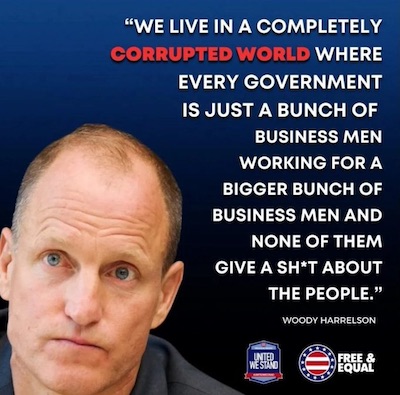

Choke a horse
https://twitter.com/i/status/1763844457420509217

Good child
If you want a good world in the future, raise a good child pic.twitter.com/bxzhTeGkdo
— Enez Özen (@Enezator) March 2, 2024

Yanis
Delighted that Raoul's new series has been watched in over 70 countries so far.
[Available in English, with Greek and German subtitled versions] Watch at https://t.co/GelXFXfm8S pic.twitter.com/qgh617c6CG— Yanis Varoufakis (@yanisvaroufakis) March 3, 2024


Support the Automatic Earth in wartime with Paypal, Bitcoin and Patreon.







